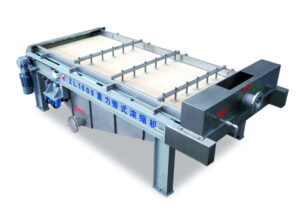Implementing torque control in a thickener system can present some challenges. Here are some common challenges associated with implementing torque control in a thickener:
Equipment Compatibility
Not all thickener equipment is designed to be compatible with torque control systems, so it may be difficult to retrofit some existing equipment with torque control.
Sensor Accuracy
Torque sensors can be sensitive to vibrations and other external factors, which can affect their accuracy. This can lead to false readings and incorrect adjustments to the thickener system.

Control System Complexity
Implementing torque control in a thickener system requires a complex control system that can monitor the torque on the drive system and adjust the speed of the rake or scraper accordingly. This can be challenging to implement and may require additional training and expertise.
Cost
Implementing torque control in a thickener system can be expensive due to the cost of the equipment and the complexity of the control system. This can be a barrier for some Thickner factory who are working with limited budgets.
Maintenance
Torque control systems require regular maintenance to ensure that they are operating correctly. This can include calibration of the sensors, adjustment of the control system, and replacement of worn or damaged components.
Implementing torque control in a thickener system can present some challenges, but the benefits of improved efficiency and reduced energy consumption can make it worthwhile. It is important to work with experienced professionals who can help to navigate the challenges associated with torque control implementation and ensure that the system is operating correctly.
